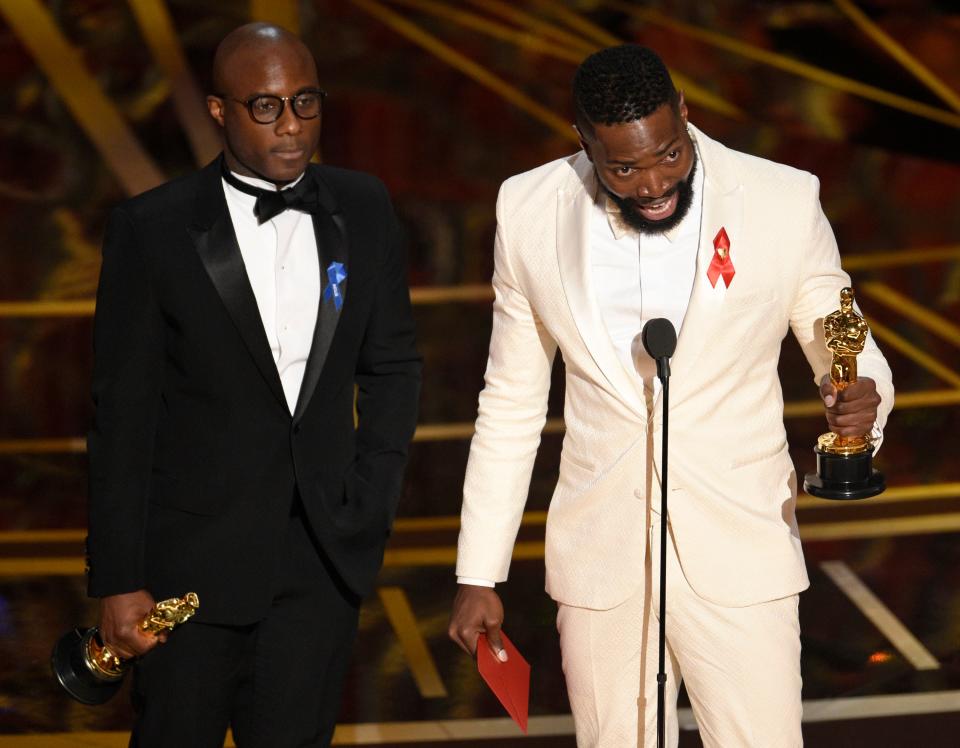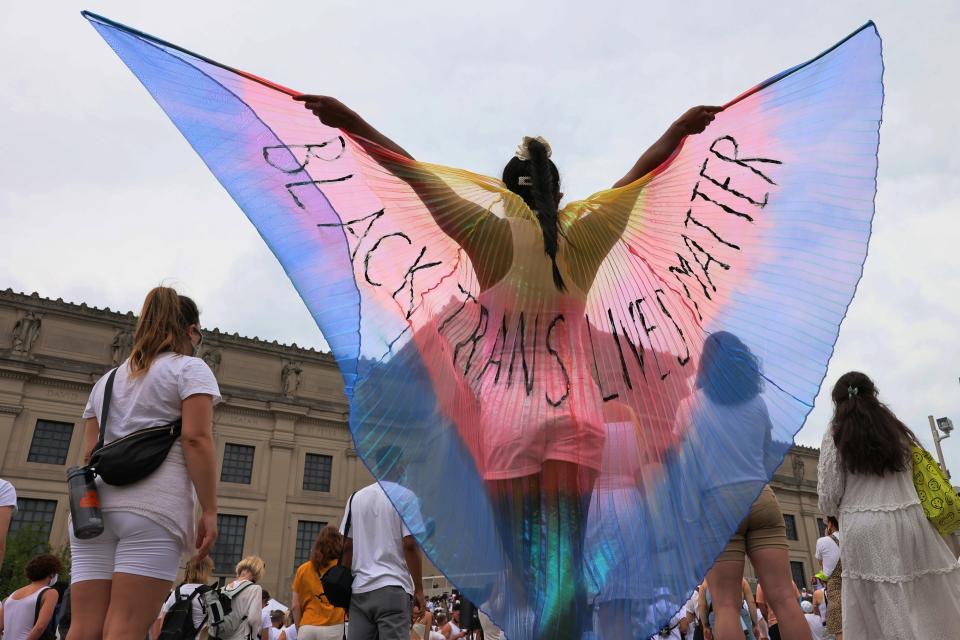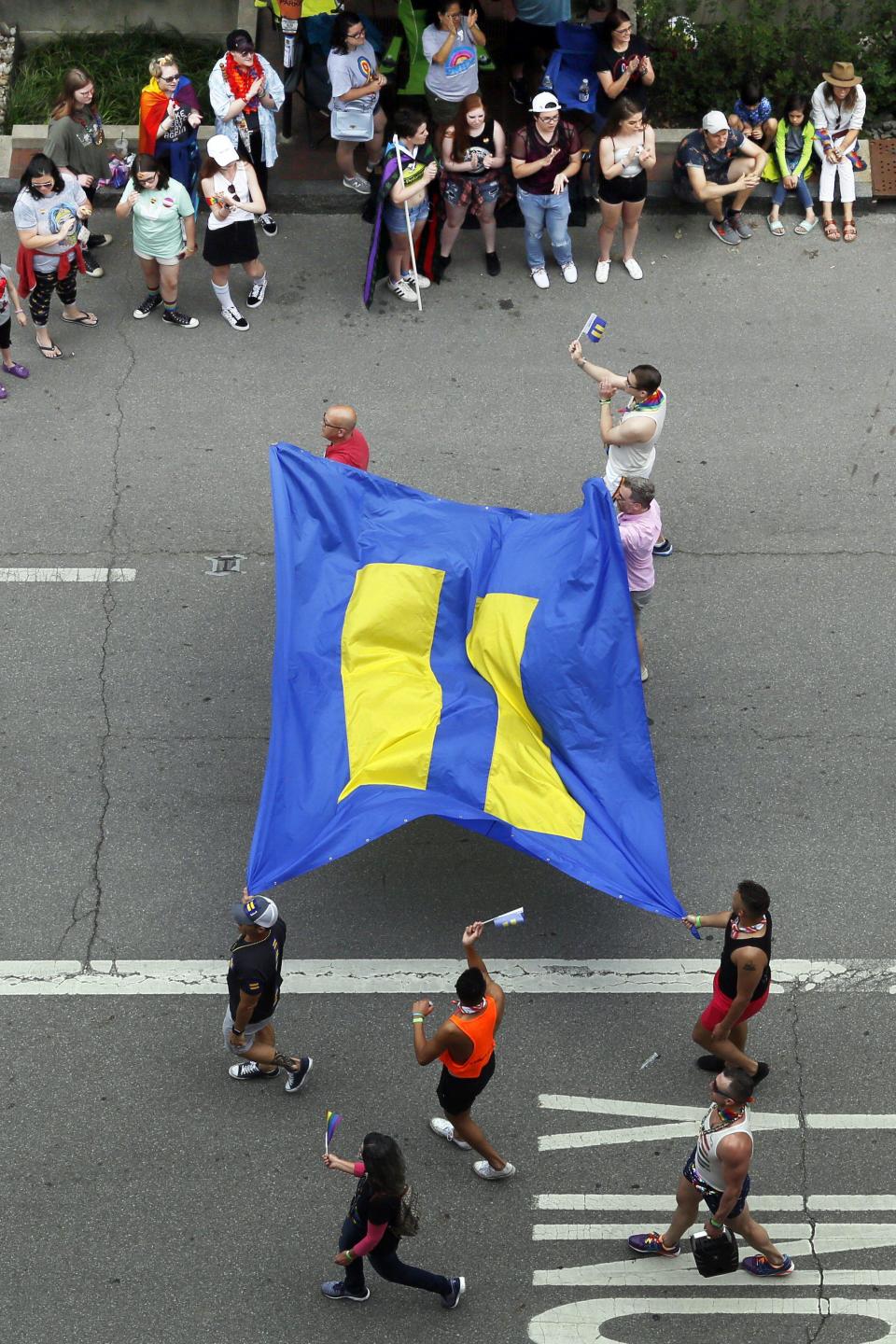A 'crisis': 1 in 4 Black transgender, nonbinary youths attempted suicide in previous year, study finds
One in 4 Black transgender or nonbinary youths attempted suicide in the previous year, a figure more than twice the rate of their Black cisgender peers, according to a new research brief from the Trevor Project that called the situation "a public health crisis that deserves immediate attention."
The results were among key findings of the latest brief compiled by the Trevor Project as it combs through data collected from nearly 34,000 LGBTQ young people nationwide for its 2022 National Survey on LGBTQ Youth Mental Health. The organization, based in New York, focuses on suicide prevention for LGBTQ youths.
“This report is yet another piece of evidence that we aren’t doing enough to fight for these kids,” said Jack Turban, director of the gender psychiatry program at the University of California, San Francisco. “Improving the situation will mean making broad structural and societal improvements in the ways we treat trans youth of color. Unfortunately, we seem to be moving in the opposite direction.”

Of 3,008 survey respondents who identified as Black, 25% of those also identifying as trans or nonbinary reported attempting suicide in the previous year, the report said, compared to 12% of their cisgender peers who identified as gay, lesbian, or bisexual. The figure was also higher than that of their white trans or nonbinary counterparts (16%).
A group facing unique obstacles
The results, the report said, reflect challenges faced by Black transgender and nonbinary youngsters as members of dual marginalized communities, a situation exacerbated by waves of anti-LGBTQ legislation that have proliferated in recent years.
The American Civil Liberties Union said 336 anti-LGBTQ bills have been introduced in statehouses across the country in 2023, eclipsing the record 315 tallied by the Human Rights Campaign in 2022. Many bills target transgender youths, prohibiting gender-affirming care or participation in school sports teams aligned with their gender identity.
“It can’t be understated, the degree of transphobia we are seeing among politicians,” said Gina Sequeira, co-director of the Seattle Children's Gender Clinic in Washington. “The patients I take care of are incredibly fearful of the atmosphere they see.”

Another factor, Sequeira noted, is the record levels of fatal violence suffered by transgender victims in recent years, especially Black trans women.
“We have to acknowledge that societal racism and transphobia directly correlate with some of the findings we see,” she said.
How do these disparities play out?
In general, transgender and nonbinary youths experience higher rates of suicide and suicidal thoughts, and with suicide rates among young Black people rising 37% from 2018 to 2021, researchers said those who belong to both groups may be “more susceptible to negative experiences and chronic stress” as a result.
Young trans and nonbinary Black people also reported higher rates of victimization, with 77% having felt discriminated against because of their identity (compared to 56% of their Black lesbian, gay, bi and queer peers); being physically threatened or harmed because of their identity (40% to 22%); and experiencing homelessness or running away from home (34% to 24%).
Meanwhile, Black transgender and nonbinary youths were far less likely (13%) than their Black lesbian, gay, bi and queer peers (72%) to receive strong social support from family members – a key factor in lowering the odds of suicide attempts.

"At a systemic level, major changes need to be made to ensure that Black trans and nonbinary young people have access to the mental health care that they need to thrive," Myeshia Price, director of research science for the Trevor Project, said. "It's imperative that mental health resources are made accessible for our most vulnerable communities."
The power of strong family support
The study found family support made a significant difference in how such youth fared, showing that Black transgender and nonbinary youths who enjoyed strong social support from family members were 47% less likely to report attempting suicide in the previous year.
“Family love and acceptance are strong protective factors that can buffer against the negative impacts of societal stigma on mental health,” Turban said. “Validating your child, accepting them for who they are and always reminding them that you’re on their team is extraordinarily powerful.”
Price said the findings call for immediate action by educators, youth services providers and mental health professionals “to ensure that Black trans and nonbinary young people feel seen, supported, and protected against a world that so often brings them harm."
What other societal changes can help?
Addressing the problem goes beyond just encouraging Black families to openly support their transgender and nonbinary youths, the study’s authors wrote. In addition to ensuring that mental health and youth service professionals prioritize Black transgender and nonbinary well-being, they called for involving family members and friends in the creation and implementation of suicide intervention strategies.
Dig deeper
'Every month brings a new threat to LGBTQ+ rights and equality': Bans on LGBTQ Pride flag spark debate about inclusion, civil rights
Gen Z is driving force among adults identifying as LGBTQ, poll shows: Here's a breakdown.
'A pivotal time': LGBTQ Task Force enters 50th year fighting blitz of anti-LGBTQ bills
This article originally appeared on USA TODAY: Black trans and nonbinary youths face high suicide rates, study finds

